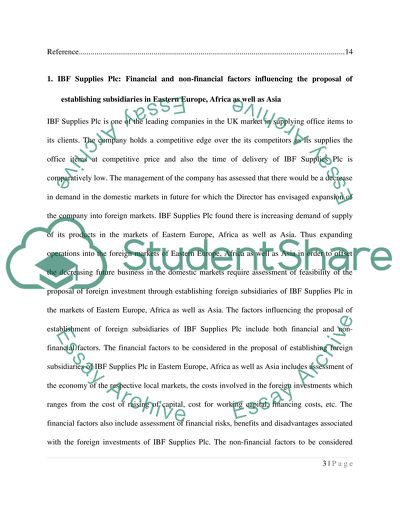Cite this document
(“Finance and accounting essay: International business Essay”, n.d.)
Retrieved from https://studentshare.org/finance-accounting/1404425-international-business-finance
Retrieved from https://studentshare.org/finance-accounting/1404425-international-business-finance
(Finance and Accounting Essay: International Business Essay)
https://studentshare.org/finance-accounting/1404425-international-business-finance.
https://studentshare.org/finance-accounting/1404425-international-business-finance.
“Finance and Accounting Essay: International Business Essay”, n.d. https://studentshare.org/finance-accounting/1404425-international-business-finance.


